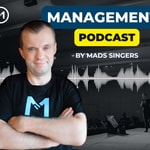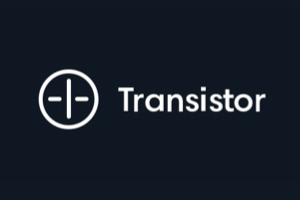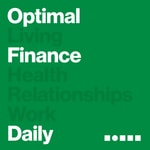Mads Singers Management Podcast – Details, episodes & analysis
Podcast details
Technical and general information from the podcast's RSS feed.

Mads Singers Management Podcast
Mads Singers
Frequency: 1 episode/7d. Total Eps: 185

Recent rankings
Latest chart positions across Apple Podcasts and Spotify rankings.
Apple Podcasts
🇨🇦 Canada - management
04/11/2024#69
Spotify
No recent rankings available
Shared links between episodes and podcasts
Links found in episode descriptions and other podcasts that share them.
See all- https://slack.com/
628 shares
- https://ouraring.com/
548 shares
- https://asana.com/
506 shares
RSS feed quality and score
Technical evaluation of the podcast's RSS feed quality and structure.
See allScore global : 48%
Publication history
Monthly episode publishing history over the past years.
#185: How To Improve Your Business Efficiency Without Wasting A Lot Of Money
jeudi 30 mars 2023 • Duration 28:23
Episode Summary
As you know by now, a business that efficiently runs is much more likely to find continued success over the long term. If you’ve ever asked yourself as an entrepreneur, “How to increase business efficiency?” Well, let me tell you - efficiency boosts productivity and can give you an edge in today’s competitive market.
Adam and I talked about how to increase business efficiency and its high points. A lot of entrepreneurs out there are struggling to scale up simply because: They haven’t identified the deeper layer of the business industry they are in.
Have you identified the business industry you’re in? You’re in for luck!
Tap in now and tune in until the very end to know how that matters!
Listen to this week's show and learn:
- How to get to know your business;
- Why getting to know your business industry helps you improve business efficiency;
- How can you begin training your brand.
Episode Resources:
- Start A Party Rental Company
- The Tent Guy
- Mads Singers Free Management Training
- Join Mads Singers Management Group
Enjoyed Mads Singers’ podcast? Check out these:
#133: Kison Patel on Being Decisive and Solving Problems Effectively
#69: Nick Jordan on Scaling Up
#52: Marquis Matson on SEO Marketing for Start-Up Businesses
Have comments about the show?
Hey, do you have ideas for topics you’d like Mads Singers on future episodes? He’d love to hear from you at mads@madssingers.com!
#184: How To Successfully Communicate With Your Remote Workers In A Virtual Team
mercredi 22 mars 2023 • Duration 30:12
Episode Summary
It’s no secret how hiring remote workers or setting up your virtual team made you save tons of cost. Since the pandemic, remote working has become the new norm. Do you agree? In fact, a lot of businesses right now offer hybrid work set-ups. If not, they are hiring remote workers and setting up their very own virtual team.
Omar and I talked about our experience in having our virtual teams. He shared how his communication dynamic has been working for him, which made his business scale up to its capacity now. He shared proven tips on how to keep remote employees engaged and the productivity it yields.
By now, there’s no proven science yet, in terms of communication dynamics for managing a remote team. But one thing’s for sure: If you are not effectively managing people face-to-face, there’s no chance you’d be with a remote team!
Tap in now and tune in until the very end!
Listen to this week's show and learn:
- How do you manage a remote team differently?;
- What are the better ways of your communication process?;
- How can you use a filtration process to find the right people for your virtual team?
Episode Resources:
- The $100 MBA Show
- Webinar Ninja
- Omar Zenhom
- Mads Singers Free Management Training
- Join Mads Singers Management Group
Enjoyed Mads Singers’ Management podcast? Check out these:
#107: Richard Matthews on Building Systems and Working Remotely
#41: Erick Rodriguez on Remote Management in times of COVID-19
Have comments about the show?
Hey, do you have ideas for topics you’d like Mads Singers on future episodes? He’d love to hear from you at mads@madssingers.com!
#175: Easy To Follow Business Alignment Tips For Your Small Business Success
mercredi 18 janvier 2023 • Duration 20:57
Episode Summary
Are you caught in the grip of unproductive meetings or not understanding your business and people’s functions as you thought they should be? Tristan Wright, joins us in today’s podcast episode to share how huge of an impact it can be when you acknowledge that the missing point to your small business success is an effective business alignment process!
In many circumstances, finding a fix is easy when looking at an isolated problem. But how do you overcome "misalignment" to bring about and see the real change and impact on your small business?
You can say with certainty that there are two things that every small business can easily do to turn things around: acknowledge the need for change, and execute!
If you are having a hard time choosing the right direction for your business and not getting enough traction, listen in to today’s episode and make things turn around!
Follow our practical alignment tips, and you'll be on your way to a well-aligned and successful business!
Listen to this week's show and learn:
- How can you grow your small business with readiness;
- How can you align your business vision to your people effectively;
- Can business alignment mean failure?
Episode Resources:
Enjoyed Mads Singers’ podcast? Check out these:
#149: How To Achieve Business and Profit Growth? Achieve It With A Free Growth Plan Today!
#122: Renata Porter on Understanding and Communicating with Your Employees
Have comments about the show?
Hey, do you have ideas for topics you’d like Mads Singers on future episodes? He’d love to hear from you at mads@madssingers.com!
MSMP 85: Genesis Amaris Kemp on Diversity and Equality
mercredi 17 février 2021 • Duration 38:59
We hear a lot in the news these days about “diversity” and “inclusion” and it’s often best to speak to someone who is working on these issues each day to get a sense of the state of affairs. Today I welcome one of those people, Genesis Amaris Kemp, to the Mads Singers Management Podcast. Genesis is a self-proclaimed “enthusiast” for inclusivity and diversity and has a book that outlines her thoughts on the subject: Chocolate Drop in Corporate America.
Genesis and I started the episode talking about passion and I shared how fortunate I was to have stumbled across my passion via a great boss. She was such a great manager that I ditched my planned career path to study management so I could become as good as her. One of the problems I run into when I chat with people is they aren’t getting out there often enough to find their passions. Pro tip: you’re not going to find your passion sitting on your couch.
Part of being a great manager is being able to give feedback, but it’s also the hallmark of a great employee to be able to take feedback. I’d love to say that I was a natural, but it actually took me years to be able to just say “thank you” and thoughtfully consider what had been shared with me instead of just getting defensive and resentful, which of course led to total lack of productivity on my part.
Part of the “feedback” that the corporate world has been receiving is the need to be more inclusive and diverse in the workplace and in leadership roles. This has even led to a quota system in Norway that mandates that 40% of the seats of boards of publicly traded companies must be held by women. That’s actually been discouraging to friends of mine who earned their spots before these quotas. I also recently fielded complaints from those who looked at our speaker list for the SEO Mastery Summit: “Why aren’t there more women?” We simply didn’t have a lot of women apply. Genesis and I talked about the relevance of quotas, the importance of making sure there’s a wide range of individuals of different ethnicities and cultures in given businesses, and the need to ensure that those individuals can see a path for them to rise and spread their wings, to not just be seen, but be heard.
The trap of “checking the box” or “tokenizing” diversity is always lurking, even in our subconscious, so it’s worthwhile to challenge our assumptions and look to improve our workplaces for ourselves and our team members. Enjoy this episode with Genesis!
Key Learning Points:
1. Genesis gives us her definition of passion - 1:45
2. Mads relates how a great boss changed his career path and allowed him to stumble across a passion - 3:20
3. Mads reminds us that hearing feedback isn’t always easy - 7:30
4. Mads goes on to warn against the defensiveness that is almost a reflex when hearing negative feedback - 10:30
5. Genesis defines diversity, inclusivity, equity, and equality - 12:40
6. Mads underlines the high stakes of hiring in a small business - 17:35
7. Mads shares his own challenges in finding female speakers for a conference he runs - 22:55
8. Genesis warns of “check the box” syndrome - 28:45
9. Genesis also warns of divided employee resource groups (ERGs) - 29:30
10. Mads reminds us that mentors love to help those who are passionate - 37:30
Resources Mentioned:
Chocolate Drop in Corporate America
Connect with Genesis Amaris Kemp
1. Facebook
2. Email
MSMP 84: Mark Webster on Hiring Practices
mercredi 10 février 2021 • Duration 50:15
Hiring is one of my favorite topics to discuss, and my guest for today’s episode of the Mads Singers Management Podcast, Mark Webster, had so much good information to share about that topic. Mark is Scottish but has spent enough time in the US that his accent is somewhere in the mid-Atlantic. He currently runs Authority Hacker, which he co-founded in 2014. Authority Hacker educates website owners about the ins and outs of SEO. In a previous life, he ran a digital marketing agency with 30 team members. He also holds a small portfolio of affiliate websites.
One of the first things Mark talked about was the importance of hiring superstars. “We want A+ people or nobody,” he said. I couldn’t agree more: the cost of a bad, or even a “not so good” hire is significant. Mark agreed, noting that one of his big mistakes in the past was not firing a bad hire quickly enough. He noted that in big companies they get a “performance improvement plan” and three warnings, etc. but those small businesses don’t have that kind of “luxury.” A business can be significantly damaged while you drag your feet on what should be a simple decision: letting a bad fit leave the organization.
Mark also shared some great tips to mentally frame the recruitment process. Firstly, he thinks about recruitment as a funnel. You want to get “leads” (applicants) and you can only do so by really compelling “copy” (job descriptions). He then shared that 10 out of every 50 applicants are people he really wants to pursue. He also gave his thoughts on various online assessments (I mentioned my love for DISC) and he also shared some questions he likes to ask:
- “How would your last three bosses/clients rate you on a 1-10 scale? We do check references.” He says this even though they might not have time to check references.
- “Are you more interested in the job or the company?” If they don’t mention the job at all in their answer Mark knows it’s not a good fit.
- “What sorts of books/podcasts/youtube channels do you read/listen to/follow?” If it’s mostly trashy fiction, we know these aren’t people who are dedicated to personal development.
I loved hearing these, so I added one of my own, “Do you do better working on your own or on a team?” I’m not so much interested in the answer than in the way the question is answered. If the person answers right away, I know that is the true answer. If they pause and answer more slowly, then I know they are telling me what I want to hear (or at least what they think I want to hear).
Mark and I talked for quite a while and could have gone on for even longer, but I wanted to be respectful of his time (and yours), so I had to wrap it up at some point. If you’re interested in thinking through your hiring process more thoroughly, this episode is for you.
Key Learning Points:
1. Mads points out the costliness of a “not so good” hire - 4:54
2. Mark argues that you can outsource many things in a startup, but not HR - 6:41
3. Mark talks about a mistake regarding bad hires - 10:15
4. Mark shares his conception of recruiting as a “funnel” - 14:50
5. Mads talks about the concept of “recruitment as sales” - 24:11
6. Mark agrees and talks about “pre-selling” the company during a final interview - 24:40
7. Mads notes that the best hires love challenges - 25:25
8. Mark offers a framing question that helps him weed out candidates - 27:32
9. Mads adds on to that point, by noting the way that a particular question is answered gives a lot of information - 28:22
10. Mark adds some additional unusual questions that help him gain information about candidates - 33:45
11. Mads underlines the importance of having forums/opportunities to connect with staff - 45:41
Connect with Mark Webster
MSMP 83: Matt Diggity on Better Management
mercredi 3 février 2021 • Duration 41:03
It’s often said that a business is a way for the founders and employees to bring their theories to life. Sometimes those founders have enough energy and vision to drive multiple businesses. Today’s guest for the Mads Singers Management Podcast is Matt Diggity and he is very much one of those types of founders. His businesses include (drum roll): Diggity Marketing (a blog about digital marketing), Leadspring (a firm that builds authority, monetizes, and eventually sells affiliate websites), Authority Builders (a backlink service), Search Initiative (a client-facing SEO agency), Affiliate Lab (a course that teaches the background of the services that Leadspring offers, for the DIY type), and Chiang Mai SEO (during times when gathering in numbers is permitted).
If you were paying any kind of attention to that impressive resume, you’ll see that Matt has a lot of SEO superpowers and is simply deploying them in multiple ways. In order for him to do that effectively, he’s got to have great management skills. That’s actually how our paths crossed originally. I came out to one of his team’s in-person events to give them some management training. I covered a lot of what I talk about in my management course, with a special emphasis on 1 to 1 meeting and recruitment. Those two activities, apart from the day-to-day management tasks, like strategic thinking and networking, comprise the very heart of great management.
Matt shared how much he loves assigning responsibilities, rather than tasks, when he delegates. I agreed, saying that if team members are clear on the expected outcome, they can feel free to tweak the process in order to get to that outcome. Delegation also assumes knowing where someone is coming from, and I think DISC can go a long way to helping people solve that problem. Matt noted that he liked DISC because unlike Meyers-Briggs, which gives you 16 possible variants, it only has four measurements to examine.
Part of how you can get to understanding the urgency of delegation is auditing your activity: seeing how you are spending your time and noting what kind of income those activities generate. When you see that laid out it becomes so much easier to let tasks go that you simply don’t have to do, not least of which because you are nowhere near the best person in your company to do those things.
Despite all that he’s got going on, Matt is mindful of parenting and he had a lovely thought for current and aspiring parents: “There is no amount of time that is ‘enough’ to spend with your child.”
Enjoy this conversation!
Key Learning Points:
1. Matt notes the revelation of there only being two main functions of management once things get put in place - 3:08
2. Mads reminds listeners that if you can’t take a month off, you don’t have a business, just a glorified job - 4:50
3. Mads emphasizes the ineffectiveness of doing tasks that should be outsourced - 8:15
4. Mads talks about the “boxes” that DISC helps create - 15:30
5. Mark shares the helpfulness of assigning responsibilities rather than tasks - 20:15
6. Mark underlines that delegation assumes A-players - 31:25
7. Mads discusses an alternative way of framing a job search - 34:35
8. Matt tells listeners a key lesson about parenthood - 39:15
Resources Mentioned:
The Algebra of Happiness by Scott Galloway
Connect with Matt Diggity
MSMP 82: Martin Ebongue on Building a Team
mercredi 27 janvier 2021 • Duration 34:00
Seven years ago Martin Ebongue was living in France, working at a job that he enjoyed. But he wanted more freedom, and since he had already built some online businesses with good revenue streams, he was able to quit that job and go on a world tour for 18 months. He ended up settling down in Bali, which is where he was when he joined me as a guest for an episode of the Mads Singers Management Podcast.
One of the big themes of discussion for us on this episode was delegation. Martin stressed the need to let go of your ego: “I’m not always the best person to take care of a certain task,” he noted. But it’s not enough to just come to this realization. There also has to be a process for delegation. Martin’s process involves him going through the task once himself before handing it over to someone. That person then confirms that they understand exactly how to accomplish the task (and if they don’t they can ask). This seems to work well for Martin as he has only had one team member leave in the last seven years.
I shared that one of the biggest pain points that should lead people to delegate in the first place is the burden of being a subject matter expert (sometimes in multiple fields). That means that people are always coming to you for decisions, creating bottlenecks. Martin agreed, saying that while it may feel like a burden to create a process in the first place, that’s only a short time commitment which pays outsized dividends in giving you more of a personal life.
Martin also believes in having a team culture that looks for collaboration rather than competition. Given that his team is spread out across three continents (Europe, Africa, Asia) that’s a powerful mindset to keep the team collaborating. This collaboration extends to the hiring process. Martin’s first two employees were simply excellent freelancers that he ended up bringing on full-time. He began to realize that people who have achieved mastery in a certain field tend to know others who have also achieved mastery in different fields. This led him to start looking for potential candidates from his team’s recommendations. There are so many different components to a great team, and different candidates bring different skills and personalities to the table.
Along these same lines, I was recently chatting with a coaching client about a new hire he was very excited about. “If only I could get one more like him,” he said. “Well,” I said, “why not ask him?” Winners know winners.
Martin is one of those winners and I know you’ll enjoy this conversation as much as I did.
Key Learning Points:
1. Martin shares the locations of his remote team - 2:43
2. Martin discusses the importance of letting go of your ego in delegating better - 3:45
3. Martin talks about how he empowers his employees once he has delegated tasks to them - 6:35
4. Martin outlines his process of delegation - 8:02
5. Martin states that he has only had one team member leave in seven years - 11:15
6. Martin notes the progression of some freelancers to becoming his first hires - 16:05
7. Martin emphasizes the importance of asking your people to help find new hires - 17:30
8. Martin stresses the short-term pain that needs to be overcome in creating new processes - 20:20
9. Mads talks about the hazards of being a subject matter expert - 25:18
10. Martin opines about the time of team culture he wishes to foster - 29:08
Connect with Martin Ebongue
MSMP 81: Jeroen Corthout on Building a SaaS
mercredi 20 janvier 2021 • Duration 30:51
SaaS is such a key part of the business world in general so it’s always great to go behind the scenes with someone who is actually in the trenches, building and managing a SaaS. Jeroen Corthout, our guest for today’s episode of the Mads Singers Management Podcast, is building Salesflare, a B2B CRM servicing a few thousand companies.
While you might think of a SaaS as the company that would be most likely to be built by a distributed remote team, prior to March 2020 Salesflare was 100% in-person in Antwerp, Belgium. Jeroen had believed that everyone “being in the same room” was always going to be the best-case scenario. But what he noticed as the team was forced to go remote via governmental regulations and lockdowns, was that the “same room” philosophy was lazy. “It meant we were relying on accidentally overhearing something. There was no system in place.” That system was put firmly in place as 2020 continued, down to how the team would keep track of decisions in meetings (Google Docs visible to all) and how they could see people’s reactions when they weren’t all in the same room (having everyone tiled during a team call so that everyone could be seen).
This intentionality in communication had long been a hallmark of how Salesflare dealt with customers. Every developer periodically spends a week on the customer-facing side, to get a sense of what is going on there in terms of customer feedback and technical issues. Jeroen noted that AI will play a role in software development in the future, but for now it’s up to him and his team to try to anticipate what the customer is thinking using processes like developers listening in on calls or watching chats.
SaaS businesses face several dueling pressures. One is the question of profitability vs growth. I was glad to see that Jeroen wasn’t chasing profitability at any cost: he was clearly aware of his niche and stated that at the beginning of the episode. He also shared his desire to improve the hiring process as the company grows in the future. The other dueling pressure he has to deal with every day is building vs communicating. The development team has to build a great product and tries to extract from customers what they like, but more importantly, why they like it. This communication with the customer is key, and Jeroen encourages this early on by not only adding every potential customer on LinkedIn, letting them know there’s an open door should they wish to talk but also by adding more “free trial” time as those new users complete more tasks within the CRM.
If you, like me, find the SaaS trend fascinating, this episode will be a great chance for you to understand it more, from someone who is living it day-to-day. Enjoy!
Key Learning Points:
1. Jeroen talks about the essence of what SaaS has to deliver to be competitive - 3:00
2. Jeroen shares the two main jobs of any successful software company - 4:10
3. Jeroen discusses systems he has in place to make sure his team understand how customers are thinking - 7:37
4. Jeroen notes the need to stay in touch with his team and with clients (and how he does both) - 8:14
5. Jeroen explains the process his team uses to improve the product - 9:40
6. Jeroen opines on the game-changing nature of his team going remote due to Covid - 14:54
7. Jeroen stresses the importance of morning standup meetings - 19:35
8. Jeroen ruminates on the push/pull tensions of growth and profitability - 25:50
Connect with Jeroen Corthout:
1. Salesflare
2. LinkedIn
MSMP 80: Effie Parnell-Hopkinson on Team Management
mercredi 13 janvier 2021 • Duration 29:55
Sometimes entrepreneurs can be so focused on working for themselves that it’s considered shameful to ever go and work for someone else. But when you have such a limiting belief, you miss out on the opportunity to learn. Our guest for today’s episode of the Mads Singers Management Podcast, Effie Parnell-Hopkinson, is someone who didn’t limit herself and came away from a job experience with some lessons that helped her level up.
Effie has spent some of her careers as a bodybuilder and while studying for her undergraduate degree people started to ask her (unsurprisingly) about proper eating and exercise. After enough people were asking, she started a health coaching business while getting her Masters in nutrition. At some point along the journey she met Dr. Emil Goliath, who also had a health coaching business. They became business partners (and started dating) and that’s where she is today, handling operations for Health Evolved.
Knowing she had come from a business owner background, I was keen to find out what she had learned during her stint working as an employee in another business. “Nobody really knows what they are doing,” she said wryly. “Everyone is learning and making mistakes, and even though a business may look like it’s succeeding from the outside, there are real challenges on the inside.” I couldn’t have agreed more. So often in my business coaching experience, I’ve seen people who own jobs, not businesses, precisely because they haven’t taken the time to create systems or properly delegate.
They don’t teach those sorts of skills in school, and Effie and I agreed on the importance of apprenticing for someone successful. Don’t focus on the money but instead treasure the incredible knowledge and lessons you are going to get from someone who is further along in a journey than you are.
One of those key lessons you might glean is making sure that remote teams have proper expectations, especially given time zone differences. People need to know how and why they are doing something and should be given all the resources they need at the very beginning. Effie added on that part of proper delegation is getting to know the team member better during onboarding. If you know where they want to go personally and professionally, you’re more empowered as a manager to help them get there.
That also means hiring for cultural fit, which you can only do if you have taken the time to write a job description that properly spells out not just what the job entails but what kind of company you are. I noted that when dealing with hiring that no hire is always better than a bad hire.
This chat with Effie really flew by and I think you’ll appreciate and enjoy her perspectives.
Key Learning Points:
1. Mads discusses the “shame” that is sometimes spread in the entrepreneurial community about working for someone else - 4:25
2. Effie shares her struggles in working for someone else after having her own business for so long - 5:25
3. Effie notes some insights she gained from having a job - 7:14
4. Mads talks about the “free lessons” on offer when you apprentice for high-level entrepreneurs - 10:12
5. Effie shares a “paint it done” strategy she uses for delegation - 13:20
6. Effie opines on the importance of clear expectations when working across multiple time zones - 18:00
7. Effie talks about the importance of hiring for cultural fit - 24:52
8. Mads shares that “no hire is better than a bad hire” - 26:25
9. Mads notes that the brand of team software you use is less important than the team being properly trained to use it - 28:15
Resources Mentioned:
Connect with Effie Parnell-Hopkinson
1. Facebook
MSMP 79: Alex Zuev on Intercultural Management
mercredi 6 janvier 2021 • Duration 33:51
It’s not often that we’re able to speak to someone who has managed in three different cultures, and that’s why I was so excited to welcome Alex Zuev of Ardor SEO onto the Mads Singers Management Podcast. Alex is a self-proclaimed IT geek and started his career developing payment systems in Russia similar to Paypal. After success in that field, he started his own business and as part of the bootstrapping process learned how to do his own SEO. Soon enough he was helping others with that, too. He has spent time working and living in China in a digital marketing position for Alibaba. He’s also lived and worked in the United States, specifically NY. Today, Alex and his wife make their home in Asia, Vietnam specifically.
With such a CV, I was keen to get into all the cultural differences in management he’s witnessed. One of the first points he discussed was the gap between a boss and an employee:
- In China there is an enormous gap between the two, with a pronounced dislike for foreigners in the management ranks
- In the West, particularly in the US, there’s more of a collaborative relationship, akin to colleagues
- In Russia there’s a mix of the previous two systems
What does that mean on the practical level? Well, during his time at Alibaba, he had to fight for three months so that his team could get direct access to developers so that problems could be addressed pre-emptively and directly instead of in the slow and plodding manner of large corporations. Once that connection (and correction) was made, Alex saw a 2X/3X improvement in the quality of work, but if he hadn’t known to be persistent, that improvement wouldn’t have ever happened.
That’s one of the reasons he prefers working at smaller companies: it’s easier to get your ideas implemented (or at least heard). It also means you can be thinking in the same ways by running things like a book club in your team. As new ideas from these books get bounced around from discussions, they can also be directly applied to processes and procedures.
Speaking of processes and delegation, Alex’s ultimate delegation trick is automation. He’s a big believer in using technologies to “set it and forget it” with processes whenever possible.
Alex has a wealth of information and experience and we could have spoken for much longer than we did. Enjoy!
Key Learning Points:
1. Alex discusses the value of empathy in communication - 9:20
2. Alex shares his experiences working with Filipinos - 11:41
3. Alex notes the importance of personality testing in hiring - 14:06
4. Alex talks about the differences between working in a small firm and a big one - 15:27
5. Alex addresses the Chinese dislike for foreign managers in their ranks - 19:55
6. Mads talks about the upside of challenges - 23:15
7. Alex preaches automation as delegation - 27:45
8. Alex opines on the value of a company book club - 31:13
Resources Mentioned:
Connect with Alex Zuev









